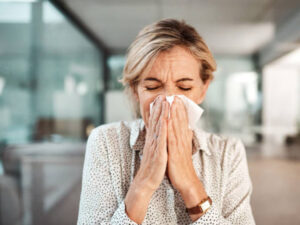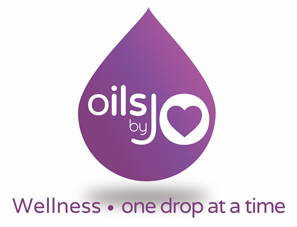Menopausal hay fever: how menopause affects allergies
If you’ve suddenly developed hay fever in your 40s or 50s, it could be linked to your fluctuating menopausal hormones.
 Glorious sunshine, blooming flowers and the lingering scent of freshly cut grass on a warm breeze are all things that make summer wonderful. But, they are also aspects of warmer months that wreak havoc if you’re susceptible to hay fever. Seasonal allergies can strike during the menopause, even if you’ve never experienced it before.
An estimated 31 per cent of adults in the UK reported suffering from hay fever in 2018. However, according to Allergy UK, there’s been a significant rise in the numbers of both women and men developing the condition in later life.
Glorious sunshine, blooming flowers and the lingering scent of freshly cut grass on a warm breeze are all things that make summer wonderful. But, they are also aspects of warmer months that wreak havoc if you’re susceptible to hay fever. Seasonal allergies can strike during the menopause, even if you’ve never experienced it before.
An estimated 31 per cent of adults in the UK reported suffering from hay fever in 2018. However, according to Allergy UK, there’s been a significant rise in the numbers of both women and men developing the condition in later life.
How does menopause cause hay fever?
However, for some women, it’s the hormone changes that accompany perimenopause and menopause that could be to blame for the sudden onset of hay fever. The changing levels of the hormones oestrogen and progesterone can stimulate mast cells (important cells involved in allergic reactions), triggering allergies and asthma for some women, Many women also experience this change around menstruation, during pregnancy, and when taking oral contraceptives or HRT. These mast cells release histamines (chemicals your immune system makes to fend off allergens and bugs through symptoms such as sneezing and coughing). There are natural solutions that can and will help. Better yet, it is very likely you will grow out of hormonal hay fever once the menopause has passed.How to ease menopausal hay fever through your diet
Adapting your diet to include low-histamine foods and anti-inflammatory herbal teas might be all you need to stay free from allergic reactions. Certain foods are high in histamines and these should be avoided. On the other hand, some foods are low in histamine and, in some cases, even contain anti-histamines. These are capable of disrupting or blocking the histamine receptors in your immune system, thereby greatly reducing irritating menopausal hay fever symptoms. This is why altering your diet to restrict these foods (and adding in some anti-histamine foods instead!) can make a world of difference to all allergies, including menopausal hay fever.High histamine foods include:
- Processed and smoked meat (sausage, ham, salami etc.)
- Dairy
- Fermented and pickled foods
- Tomatoes, mushrooms, avocados, and spinach
- Artificial ingredients
- Sugar
Low- and anti-histamine foods include:
- Fresh meat and fish
- Raw local honey
- Whole grains
- Fruit and vegetables rich in vitamin C (except tomatoes and strawberries)
- Garlic
Best teas for menopausal hay fever relief
Some herbal teas have amazing anti-inflammatory, anti-histamine effects, including:- Ginger – a powerful natural anti-inflammatory.
- Nettle – high in vitamin C and a natural anti-histamine.
- Green tea – boosts your immune system and acts as a natural anti-histamine.
- Peppermint – unclogs sinuses and treats scratchy throats.
- Elderflower– a naturally soothing decongestant.
Aromatherapy oils for menopausal hay fever
As you know I am a big believer in essential oils and inhaling therapeutic oils has been shown to significantly reduce allergic hypersensitivity and inflammatory factors that can lead to hay fever symptoms. The oils that I would recommend are:- Lavender for its calming properties
- Peppermint for the energy boost
- Lemon for the detox properties.
- Participants showed fewer symptoms and an improved quality of life.
If you need any further information please contact us today on 07770 302504 or email jo@oilsbyjo.co.uk





